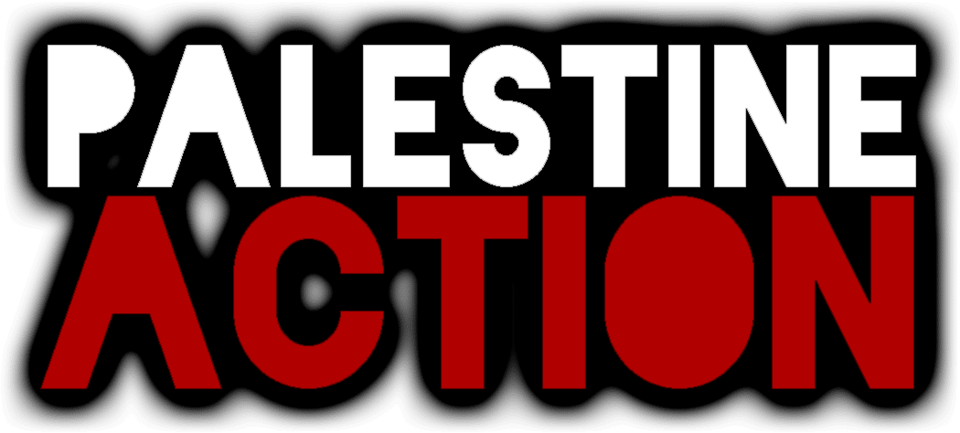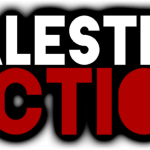Europe’s human rights watchdog has raised concerns about the policing of protests in the UK following arrests over the government ban on Palestine Action and says current UK laws “impose excessive limits on freedom of assembly and expression”.
Michael O’Flaherty, the Council of Europe commissioner for human rights, said the UK’s current legal framework risks “overpolicing” and advises Home Secretary Shabana Mahmood to do a “comprehensive review” of whether the UK complies with its human rights obligations.
In a letter to Mahmood published on 14 October but sent in September, the commissioner noted that “domestic legislation designed to counter ‘terrorism’ or ‘violent extremism’ must not impose any limitations on fundamental rights and freedoms, including the right to freedom of peaceful assembly, that are not strictly necessary for the protection of national security and the rights and freedoms of others.”
BBC News quoted a government source saying Mahmood took a “dim view of the arguments” and “fundamentally disagrees with the assessment”.
“It doesn’t help sustain public confidence in the European Convention,” they continued, “when the council is seen to intervene in domestic politics and national security in this way.”
12 days after the commissioner’s letter, Mahmood announced new powers for the police to control and restrict protests.
Under the new powers to be “brought forward as soon as possible” police will be able to consider the “cumulative impact” of previous protests which could mean they instruct organisers to hold events elsewhere where there have been repeated demonstrations or restrict the duration of events.
Three days later Prime Minister Keir Starmer said the government needed to “go further” and could consider more curbs, including targeting some of the chants used at pro-Palestinian demonstrations.
Currently, for police to ban a march entirely, there needs to be a risk of serious public disorder.
Their actions came in the days after an attack on a Manchester synagogue which killed three people – one worshipper in the attack and two other people shot dead by the police – the attacker and another person hit accidentally in police gunfire.
And just as negotiators in the Middle East were finalising agreement on US President Donald Trump’s peace plan to end the war in Gaza.
Mahmood and Starmer urged that planned pro-Palestinian protests in Manchester and London be postponed or cancelled in the wake of the Manchester attack but organisers went ahead with them anyway.
In announcing the new police powers, Mahmood said that while the right to protest is fundamental “this freedom must be balanced with the freedom of their neighbours to live their lives without fear”. She claimed large, repeated protests could leave sections of the country, particularly religious communities, “feeling unsafe, intimidated and scared to leave their homes”, adding that this had been particularly evident within the Jewish community.
Just before the planned London demonstration in support of Palestine Action, organisers Defend Our Juries issued a statement saying it hoped police “choose to prioritise protecting the public from real terrorism, and not waste resources on enforcing the absurd and ridiculous ban on Palestine Action”.
Defend our Juries, the group campaigning against the proscription of Palestine Action as a terrorist organisation by the UK government, said Starmer’s comments “further confirms what we’ve warned about all along: that proscribing Palestine Action would pave the way for further authoritarian crackdowns on our fundamental rights to free speech in this country”.
“It’s astonishing that Labour is doubling down on this anti-democratic agenda, even after widespread backlash from human rights groups, legal experts, and free speech advocates across the political spectrum over their decision to ban a domestic protest group for the first time in British history.
“Every day in Gaza, the equivalent of a classroom of children is being killed by Israeli forces – yet our Prime Minister is taking about banning chants. That says everything about how little he values Palestinian lives.”
Nearly 2000 people have been arrested at monthly Support Palestine Action protests in the UK since August for simply holding signs expressing support for the outlawed group, many of them older than 60.
The human rights commissioner’s letter was published on the same day that an international human rights group criticised western governments including the UK, France and Germany for “criminalising the right to protest”.
A study by the International Federation for Human Rights (FIDH) said western governments had “weaponised” counter-terrorism legislation as well as the fight against antisemitism to suppress dissent and support for Palestinian rights in Gaza and the occupied West Bank.
It noted that “the right to protest has come under sustained attack from the British government across administrations and party lines,” and highlights government policies such as the anti-protest legislation put forward by the Conservative government in 2024 later found as unlawful, and a Labour government it claims “pushed to legitimise Israel’s genocidal violence” and “continued to justify support for Israel”.
It cites statements made by the former Tory Home Secretary Suella Braverman, including calling the pro-Palestine demonstrations “hate marches”. It says the narrative stigmatised “support for Palestine and Palestinian resistance movements” and “worked to discriminate against Muslims and other racialised groups in the UK”.
The change to a Labour government in July 2024 did “little to change official government narratives”, according to the report, which says it continued to associate critique of Israel and support for Palestine with “violent antisemitism” and “targeted Muslim and racialised groups”.
Recent UK government figures have shown hate crimes against Muslims are up by nearly a fifth, after figures earlier this year revealed Islamophobic assaults surged by 73% in 2024. Antisemitic incidents in the UK have also increased.
In the UK, many rights groups including Human Rights Watch, Liberty, Amnesty International, Greenpeace, Friends of the Earth, Global Witness, and the Quakers have intervened or asked the attorney general to delay any prosecutions of Palestine Action supporters until the ban has been ruled legal.
The ban has been challenged and will be subject to a judicial review ordered by a High Court judge who allowed the legal challenge on the ground that he considered it “reasonably arguable that the proscription order amounts to a disproportionate interference” with rights guaranteed both by common law and the European Convention on Human Rights (ECHR) as well as “likely to have a significant deterrent effect on legitimate speech”.
Separately, the Liberal Democrats have written to the government’s independent reviewer of terrorism legislation, asking that he urgently examine the “troubling precedent” of using the Terrorism Act to arrest large numbers of people expressing support for Palestine Action.
The International Federation of Human Rights represents 188 non-governmental organisations (NGOs) in 116 countries. It conducted its research using open sources, first-hand testimonies, and reports from international bodies,-between October 2023 and September 2025, focusing particularly on the UK, France, Germany and the USA, all countries where it concludes that the right to protest has come under sustained attack.
“This trend reflects a worrying shift towards the normalisation of exceptional measures in dealing with dissenting voices,” said Yosra Frawes, the head of the Maghreb and Middle East desk at FIDH.
In the USA there are wider signs of authoritarianism as AEJ honorary member Llewellyn King details.
Europe’s human rights commissioner urges review of UK protest laws – BBC News
Human rights commissioner urges law review over Palestine Action arrests – The Guardian
CoE commissioner addresses UK human rights issues – Commissioner for Human Rights Office
Human rights commissioner’s letter to Shabana Mahmood
Police to get broader powers on protests – BBC News 5 October 2025
Starmer on pro-Palestinian protest – BBC News 8 October 2025
Manchester synagogue attack – CNN 3 October 2025
Palestine Action protest – BBC News 4 October 2025
Palestine Action Protest – The Guardian 4 October 2025
Defend Our Juries
Palestine Action – Wikipedia
Protests in the UK
Two largest UK human rights groups intervene in Palestine Action law case – Liberty 5 September 2025
Palestine Action and the law – UK Constitutional Laws Association
Policing protest prosecutions – Joshua Rosenberg
Right to protest under attack in the west – The Guardian 14 October 2025
International Federation of Human Rights report – 14 October 2025
High Court judge’s ruling for a judicial review of the proscription on Palestine Action – 30 July 2025
Questions about how Palestine Action was banned – Declassified 24 July 2025
Ban on Palestine Action – what happens next? – The Conversation 15 August 2025
Fear in America – Llewellyn King 10 October 2025








